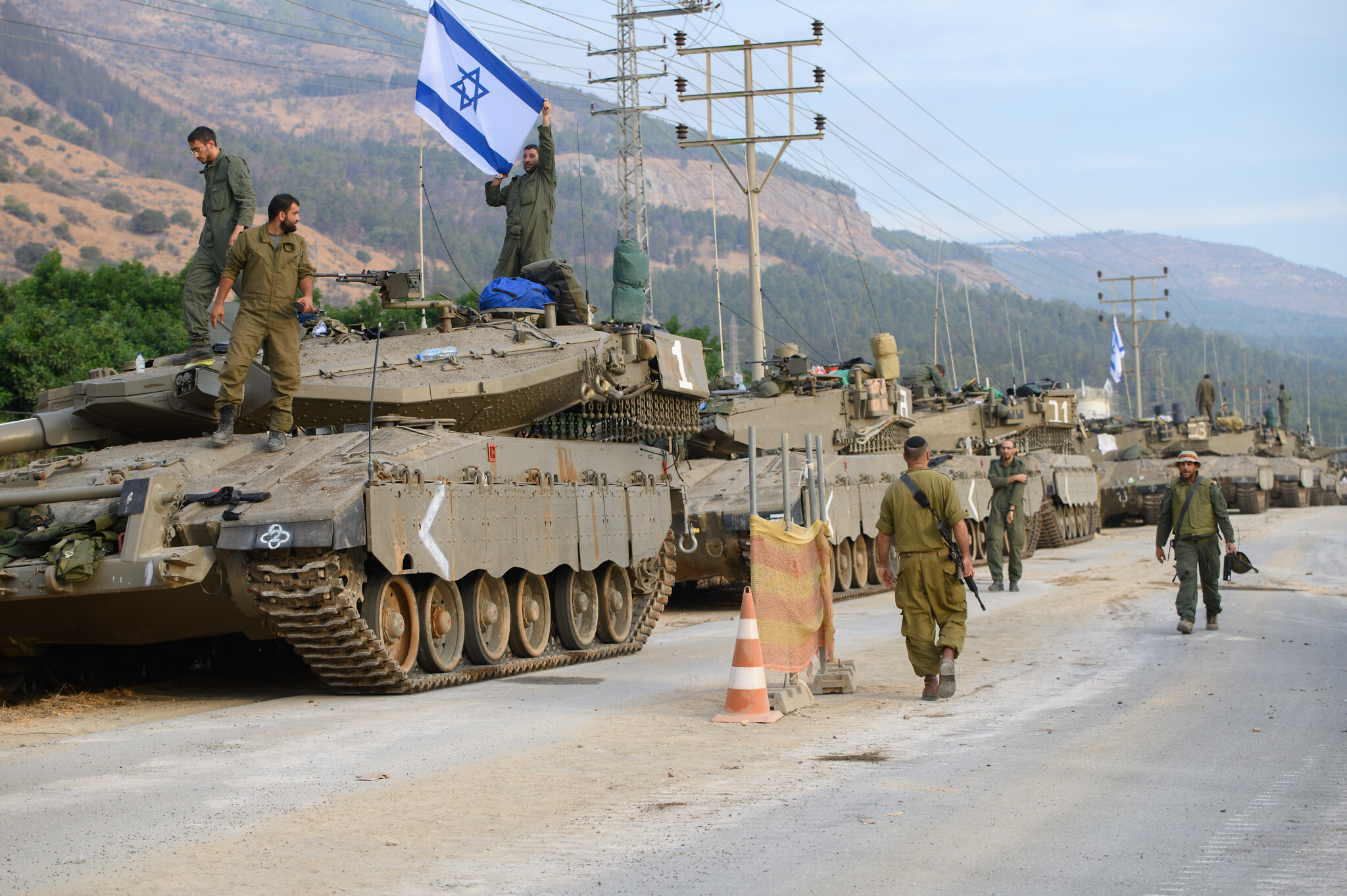Israel moves troops to Lebanon, escalating tensions following a series of explosions targeting Hezbollah. These attacks, believed to be carried out by Israel, have intensified fears of a full-scale conflict between the two sides.
The explosions, which primarily targeted electronic devices such as walkie-talkies and solar equipment, have resulted in significant casualties and widespread panic across Lebanon. This development follows the previous day’s attack, where hundreds of pagers used by Hezbollah members exploded, causing further damage and raising concerns about the ongoing war.
Hezbollah’s Response and the Widening Conflict
The second wave of explosions in Lebanon has heightened fears that the conflict may expand beyond its current scope. Hezbollah has long been a key player in the region, and its response to the attacks has been swift and forceful.
The group has vowed to continue its strikes against Israel in support of Hamas and the Palestinian cause, signaling that the violence may escalate further.
Israel moves troops to Lebanon in response to these developments, marking a significant shift in the conflict. While Israel has previously conducted airstrikes and other military operations, the movement of ground troops to the border suggests that a broader conflict may be on the horizon.
Read : Hezbollah fighters’ pagers explode in Lebanon, injuring over 2,800 people
Israeli officials have remained tight-lipped about the specifics of their strategy, but Defense Minister Yoav Gallant has indicated that the country is entering a new phase of the war, one that will require “courage, determination, and perseverance.”
Impact of the Explosions on Civilians
The explosions in Lebanon have had a devastating impact on the civilian population. Many of the pagers and other electronic devices that exploded were being carried by Hezbollah members, but civilians have also been caught in the crossfire.
The Health Ministry reported that at least nine people were killed, and more than 300 were wounded in the second wave of attacks. Among the dead are children, health care workers, and civilians who had no direct involvement with Hezbollah.
Israel moves troops to Lebanon as a precautionary measure, and while it has justified the attacks as targeting Hezbollah’s military infrastructure, the collateral damage has raised significant concerns.
The United Nations and other international bodies have called for an investigation into the attacks, citing the indiscriminate nature of the explosions and the widespread fear and terror they have unleashed.
The Escalating Military Movements
As Israel moves troops to Lebanon, the potential for a broader war grows. Israeli officials have indicated that the movement of troops to the border is part of a strategic effort to contain Hezbollah’s influence in the region. With Hezbollah already exchanging fire with Israeli forces almost daily since the outbreak of the war in Gaza, the conflict is quickly spreading to the northern border.
The movement of troops comes amid growing fears that the fighting between Israel and Hezbollah could drag Lebanon into a larger regional conflict.

Both sides have suffered significant losses, with Hezbollah fighters and Israeli soldiers killed in the ongoing exchanges. However, Israel’s decision to move ground troops suggests a shift in strategy, one that may involve more direct confrontations with Hezbollah’s forces in Lebanon.
The violence shows no signs of abating as Israel moves troops to Lebanon. Hezbollah has continued its attacks on Israeli positions, and the group’s leadership has vowed to exact revenge for the civilian casualties caused by the explosions.
Meanwhile, Israel has pledged to continue its operations, targeting Hezbollah’s military infrastructure and preventing the group from gaining a stronger foothold in the region.
The International Response
The international community has expressed deep concern over the rising violence as Israel moves troops to Lebanon. The United Nations has called for an immediate ceasefire, warning that the conflict could spiral out of control and lead to a broader regional war.
Read : The List of Top 20 Countries in Debt to China
Meanwhile, the United States has continued to assess the situation, with Secretary of State Antony Blinken noting that the escalating violence could complicate ongoing efforts to negotiate a ceasefire between Israel and Hamas.
There is growing pressure on Israel to provide evidence for its claims that Hezbollah was the primary target of the pager bombings. International human rights organizations have raised concerns about the number of civilian casualties, urging both sides to exercise restraint and avoid actions that could lead to further loss of life.
The conflict between Hezbollah and Israel has far-reaching implications, not just for the two parties involved but for the broader Middle East. As Israel moves troops to Lebanon, the potential for the conflict to spread into other neighboring countries grows, threatening to destabilize an already volatile region.
Israel moves troops to Lebanon in a calculated response to the attacks targeting Hezbollah, signaling a new and dangerous phase in the ongoing conflict. As the violence escalates, the civilian population continues to bear the brunt of the fighting, with hundreds killed or wounded in the recent explosions.
Both sides remain entrenched in their positions, and without significant international intervention, the conflict is likely to continue, with devastating consequences for Lebanon, Israel, and the broader region.
let’s enjoy few years on earth with peace and happiness….✍🏼🙏

